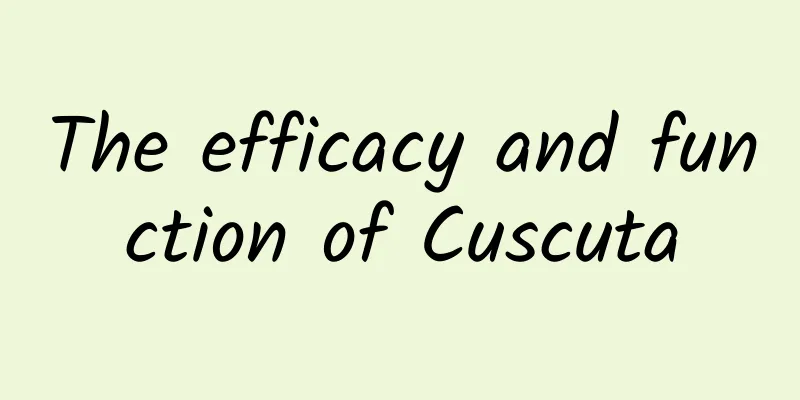What are the effects and functions of Sijunzi Decoction?

|
Traditional Chinese medicine is very common in our daily life and is often used to prevent and treat some diseases. For example, Sijunzi Decoction is still attracting much attention. It is mainly made of four kinds of traditional Chinese medicine, and it is very effective in conditioning and nourishing the body. However, when using it, you also need to be in accordance with your own health conditions to play a higher medicinal value. So what are the effects and functions of Sijunzi Decoction? Sijunzi Decoction is an ancient prescription mainly composed of four basic Chinese herbal medicines: ginseng, Atractylodes macrocephala, Poria cocos, and licorice. It is mainly used to treat spleen and stomach qi deficiency. This prescription is a basic prescription for treating spleen and stomach qi deficiency syndrome. Many spleen-tonifying and qi-invigorating prescriptions in later generations were derived from this prescription. Sijunzi Decoction is derived from the "Lizhong Pills" in "Treatise on Febrile Diseases". The dry and strong ginger in the original formula is removed and replaced with the mild Poria cocos, which changes its function from expelling severe cold to warming and replenishing the middle Qi. The prescription contains only four ingredients: ginseng, white atractylodes, poria and licorice. It is neither hot nor dry, and exerts moderate strength, in line with the ancient idea of "a gentleman seeks harmony". Ingredients: Ginseng (9g), Atractylodes macrocephala (9g), Poria cocos (9g), Roasted Licorice root (6g) Function: Tonifies Qi and strengthens the spleen. Indications: spleen and stomach qi deficiency syndrome. Pale face, low voice, shortness of breath and fatigue, poor appetite and loose stools, pale tongue with white coating, and weak pulse. (This prescription is often used for patients with chronic gastritis, gastric and duodenal ulcers, etc., which are caused by spleen deficiency.) Usage: Grind the above ingredients into fine powder. Each dose (15 grams) is boiled in one cup of water until seven parts are left. It can be taken orally at any time. Add a little salt and it can also be consumed with plain soup (modern usage: boiled in water). prescription: ⒈ For peptic ulcer disease, add the following ingredients: 15 grams of Codonopsis pilosula, 12 grams of Atractylodes macrocephala, 10 grams of Poria cocos, 6 grams of Licorice root, 15 grams of Astragalus membranaceus, 10 grams of Trillium gracile, and 15 grams of cuttlefish bone. Take one dose daily, decocted in water. It is especially effective for patients with spleen deficiency. ⒉ For chronic gastritis, add the following ingredients to this prescription: 15 grams of Codonopsis pilosula, 12 grams of Atractylodes macrocephala, 10 grams of Poria cocos, 6 grams of Licorice root, 10 grams of Astragalus membranaceus, 10 grams of Citrus aurantium, and 10 grams of Chicken gizzard lining. Take the daily dose decocted in water. ⒊ For chronic hepatitis, add the following ingredients to this prescription: 15 grams of Codonopsis pilosula, 12 grams of Atractylodes macrocephala, 10 grams of Poria cocos, 6 grams of Licorice root, 10 grams of Astragalus membranaceus, 6 grams of Bupleurum chinense, 10 grams of Angelica sinensis, and 10 grams of White Peony Root. Take one dose daily, decocted in water. Through the above introduction, everyone is very clear about the effects and functions of Sijunzi Decoction. As long as you can make full use of these traditional Chinese medicines, you can not only improve your health and play a role in health preservation and health care, but also treat and prevent certain diseases when they occur, so that your body will not be easily threatened by diseases. |
<<: What are the effects of rabbit silk?
>>: What are the effects and functions of Rehmannia glutinosa?
Recommend
What are the effects of Huanghualang
Huanghualang is actually the dandelion we often e...
eMarketer: More than 115 million people in the U.S. will shop on their smartphones in 2019
Social networks represent only a small portion of...
The efficacy and function of saw shark fin
Many people choose saw shark fins because of thei...
Can eggs be "resurrected"? In the era of traffic, how can we correctly understand the true science?
The biological blogger "Huzhang" who id...
He boiled 50 eggs just to compare two methods of making soft-boiled eggs.
Regarding boiling eggs, many cookbooks say this: ...
In some places in Hainan, this tree is more famous than the coconut tree →
Walking in Hainan, you can see coconut trees ever...
Zhoushan's thrilling "blood-red sky" has become a hot topic! Is it a UFO landing?
On the evening of May 7, some Zhoushan netizens s...
The efficacy and function of dog shit flower root
Many people know that the root of dog shit flower...
Is it good to soak your feet in mugwort during menstruation?
Foot soaking is an important health-preserving me...
The harm and benefits of drinking Pueraria root soaked in water
Pueraria root is one of the most common medicinal...
What to drink with licorice
Licorice is a very common Chinese medicine in lif...
JUICE: The messenger sent to explore Jupiter's icy moon has set off!
Produced by: Science Popularization China Author:...
Is honeysuckle effective in treating thyroid nodules?
Thyroid nodules are a common neck disease, and th...
The efficacy and function of mussels
Traditional Chinese medicine has a history of tho...
High temperature makes hairy crabs thin? I wish this was just a rumor
The west wind blows, the crab legs itch, it’s the...









